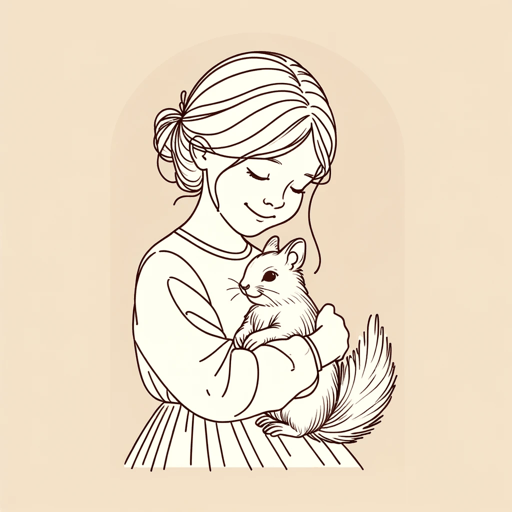78 pages • 2 hours read
Kate DiCamilloThe Tale of Despereaux
Fiction | Novel | Middle Grade | Published in 2003A modern alternative to SparkNotes and CliffsNotes, SuperSummary offers high-quality Study Guides with detailed chapter summaries and analysis of major themes, characters, and more. For select classroom titles, we also provide Teaching Guides with discussion and quiz questions to prompt student engagement.
Important Quotes
“The April sun, weak but determined, shone through a castle window and from there squeezed itself through a small hole in the wall and placed one golden finger on the little mouse.”
(Part 1, Chapter 1, Page 13)
In the very first chapter of the novel, Kate DiCamillo personifies the sunlight in order to introduce the idea that young Despereaux is divinely anointed. Even though the light is weak, like Despereaux is small, it is still as beautiful and hopeful as the small mouse is.
“Reader, you must know that an interesting fate (sometimes involving rats, sometimes not) awaits almost everyone, mouse or man, who does not conform.”
(Part 1, Chapter 3, Page 25)
This quote introduces one of the novel’s major themes: nonconformity. At this point, it is too early to know what “interesting fates” entails, so the narrator creates tension by foreshadowing. This kind of conspiratorial narration is also a common literary device in fairy tales, where the narrator strings together seemingly unrelated events through the power of omniscience, delighting in these secrets with the reader.
“‘Royalty,’ the king said, ‘has many responsibilities. And one of them is not getting personally involved with even the distant relatives of one’s enemies.’”
(Part 1, Chapter 7, Page 39)
The king tries to influence Pea’s sense of personhood by alluding to the authority that is royalty. He sees royalty as duty-bound and above all else, in the same way that Despereaux is ordered to be more mouselike and Roscuro is encouraged to indulge in ratlike evils. Ironically, as Pea exercises empathy by pushing back against stereotypes, she exhibits the more royal, “responsible” attitude her father wishes to instill in her by being intolerant.
Related Titles
By Kate DiCamillo

Because of Winn-Dixie
Kate DiCamillo

Beverly, Right Here
Kate DiCamillo

Flora And Ulysses
Kate DiCamillo

Raymie Nightingale
Kate DiCamillo

The Beatryce Prophecy
Kate DiCamillo

The Magician's Elephant
Kate DiCamillo

The Miraculous Journey of Edward Tulane
Kate DiCamillo

The Tiger Rising
Kate DiCamillo
Featured Collections
Animals in Literature
View Collection
Books & Literature
View Collection
Books Made into Movies
View Collection
Class
View Collection
Class
View Collection
Family
View Collection
Fantasy & Science Fiction Books...
View Collection
Fate
View Collection
Forgiveness
View Collection
Friendship
View Collection
Good & Evil
View Collection
Grief
View Collection
School Book List Titles
View Collection

